Littlewoods Pools was once a household name in Britain. Every week millions of people would fill in a coupon, hoping to win a fortune by predicting the outcome of football matches. Checking the coupons was a massive task and in Liverpool it provided jobs for thousands of women. The work could be exhausting but it was relatively well paid and conditions were good.
The paternalistic Moores family who owned the business wanted their staff to be happy and provided entertainment in the lunch breaks. There was plenty of after-work social activity too, plus an annual outing to Blackpool.
Life at Littlewoods is described in a book by former employee JOAN BOYCE, based on interviews with others who worked there. The following is an edited extract …
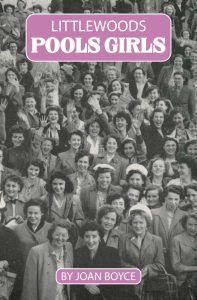
The working week
A Pools clerk’s work was very varied, you never had time to get bored. Every day was different.
Monday you could hear a pin drop. Every head was bent and in deep concentration marking the coupons and extracting winners. You had to give this task your complete attention, and for some it was a nerve-racking job — for fear of missing a winning coupon. By the end of the day you felt totally drained and ready for home.
Tuesday was paying-out day. Clients winning small amounts were dealt with by the relevant Pools clerk. Larger winners were handled by Central Registers and Central Claims. Josie Stubbs, who worked in Central Registers, explained:
We dealt with ready cash and were constantly under surveillance by security. At first this was rather intimidating, but you got used to it. The security staff were quite friendly and you realised they were just doing their job.
Central Claims was where we typed out the cheques for big winners. You had to take your time and make sure you didn’t make any errors. The completed cheques were taken to the accountant to be checked and sent out to the client.
One day, one of the girls took her cheques in to the accountant. We heard him shouting and really telling her off. She was sent back to re-do some of them because she had spelt ‘forty’ as ‘fourty’. She was so upset, and it didn’t help her confidence one bit. It was quite an easy mistake to make. We didn’t much like the accountant after that.
In the afternoon the Pools clerk’s job was to enter the client’s account with the amount of their stake. The postal order they had sent was checked against the amount they had gambled. It was a slow and tedious job, but it was easy and didn’t cause any anxiety.
Wednesday, in stark contrast, was so noisy it was like experiencing bombing in the war again. It was ‘running off’ day, addressing the envelopes to send out the following week’s coupons to the clients. [For this, Littlewoods used the Addressograph system with the name and address of each client embossed on a small metal plate.]
Addresses were printed by placing the client’s metal plate into the Addressograph, also known as the ‘Joey’, and giving it a mighty strike. The noise was incredible, and your arms would be nearly dropping off, but it produced the desired results and as soon as the exercise was finished the happier everyone was.
The rest of the day was different again, filling the envelopes with a coupon, a copy coupon and any other information that the management wanted to include. Using a rubber thumb, the women would pick up each item and thrust them into the envelope with such speed and agility that it was quicker and swifter than any machine.
The workers performed these tasks to the sound of piped music, often singing along. This created a very happy atmosphere. The singing was very effective because the movements of the hands seemed to synchronize with the beat of the music.
Some of the more cynical women suggested the idea of playing piped music had an ulterior motive and was a deliberate ploy by the management. They believed that as time went on the management increased the speed of the music to make the women work faster. Whether this is true or not we will never know.
Thursday was a day off, and probably for most the happiest day of the week. After a good break and a sleep-in, many would make their way into the city centre to spend their hard-earned cash and to meet up with friends.
Friday was back to the grind again bright and early. The whole day was spent opening the post containing the current week’s coupons. Anne Brenna recalls:
My job as a slitter was to sort the mail into pigeonholes according to the number on each envelope. When the pigeonholes were full, I would take the post out and slit the top of the envelope on the slitting machine. I would then take them to the clerk for opening.
Slitting the top of the envelope helped the women greatly. It gave them a start to open the rest of the envelope with much more speed and made it easier for them to extract the contents. I liked this job very much, the women were always praising me for being so quick and attentive; they often treated me to a cake for my break.
Every item received had to be stamped with the plate in the ‘Joey’ containing that week’s code. This was an extra security precaution to prevent fraudulent coupons somehow entering the chain. It was another noisy day but in retrospect quite varied and interesting. Often a coupon would arrive in an envelope containing your position number but would not belong to your position. The clerk receiving it would try to locate the correct position. She would say, ‘Pass that to Barnard Castle’, or ‘pass that to Hexham’ or some other place — just words really, I had no idea where these places were.
Now, years later travelling around the country by car, I often spot signposts with some of these name places on them. It brings a smile to my face and evokes happy memories of my days working in the Pools. Saturday was a repeat of Friday, opening post for most of the day.
When that job was complete silence would descend while everyone concentrated on sorting the coupons into alphabetical order and stringing them into manageable bundles for easy marking on Monday morning. Opening post involved so many different tasks you never noticed the time passing. It seemed that no sooner had you arrived in the morning that it was time to pack up and go home and look forward to the week-end break.
This was the pattern of events followed week by week. Of course, by the early sixties, everything changed dramatically. The introduction of new technology meant that a lot of the work was done by processing machines, computers and scanners. All the jobs previously done manually were mastered in half the time.
Lunchtime entertainment
Everyone was entitled to two weeks holiday with pay every year. This increased according to the length of an individual’s service. Similarly, sick pay allowance was two weeks per annum. If you didn’t need to use up your sick points, they were carried over to use the following year. Littlewoods company was also a member of Employers for Childcare and made sure that maternity, paternity and adoption leave was made available to all employees.
The canteen provisions were excellent too, very good food at subsidised prices. Most people took advantage of the opportunity to make good use of it, not only for the good food but to relax and have time to be with friends.
Nearly every lunch hour entertainment was provided either by your own building’s concert party or from a visiting one. The talent was amazing, with dancing and singing as well as comedians. You had such a good laugh and it really set you up and refreshed you to carry on with your work in the afternoon.
A summer break
At the end of the English football season there was a changeover to Australian football. There wasn’t the same amount of interest; fewer people filled in the coupons so most of the workforce went on short time. You could work three days and be paid for four, work four days and be paid for four and a half or work five and be paid for five. The majority chose to work the three days. Some had their usual Thursday off but then got other work, waitressing or working as shop assistants.
Some left the firm for the whole of the summer season. Many went to work in Butlins or Pontins holiday camps — a totally different experience — but when the football season started again, they returned to their old jobs, with lots of tales to tell. Many really relished this set-up. It gave them the opportunity to have a complete change and to experience different types of work. For some who worked in the holiday camps it was a great adventure and the very first time they had been away from home. Lily Jones recalls:
I went to work in Butlins, Pwllheli, North Wales, with a friend. We were so excited, we thought we were going on a long holiday. What a shock! We worked very long hours with very little time to enjoy ourselves. The work was hard, boring and repetitive, not a bit like what we had expected. We were disappointed, so we didn’t stay very long. We returned home and got work in T J Hughes department store. That wasn’t too bad, but sometimes customers were difficult to deal with. I enjoyed the change and the chance to experience life away from home. It was at this point that I realised how much I enjoyed working in the Pools. I missed my friends and all the laughs we had, and I looked forward to returning to work when the football season started again.
Sports and entertainment
Every month each employee would receive a copy of the staff newspaper, ‘The Review’ which gave all the news of what was happening in each building — who was getting married, who was engaged, who was retiring — as well as lots of other interesting and helpful hints and important events.
Littlewoods didn’t only give space and time for workers’ entertainment during working hours, they also provided a range of sports and social clubs for after-work activities. These covered a wide spectrum and included competitive team games, like netball, rounders, tug of war, ladies’ football and running. Each Littlewoods building was encouraged to form its own teams. Every year a sports day was organised where teams would compete. There was a lot of rivalry but all in good fun. The sports days were always a great success and well attended. Most of the workers’ families attended too and special events were set up for the children to take part.
Then there was the arts and crafts section where people entered their work in the competition. These covered subjects like landscape and portrait painting, photography, dressmaking, knitting, crochet work, embroidery, tapestry work and soft toy making. Some of the work was so beautiful and professionally carried out it must have posed a very difficult job for the judges.
One highlight of the year was the annual trip to Blackpool, arranged as a treat just before the start of the football season. Every one of my interviewees talked about these day trips with great relish. Margaret Smethwick says:
The trips to Blackpool were wonderful, Mr John and Mr Cecil [as the Moores brothers liked to be known] accompanied us on these occasions, they joined in all the fun and frivolity with such ease. The grand finale on one of these days was a firework display, the first I had ever seen. The display ended with images of Mr John’s and Mr Cecil’s faces illuminating the sky. I was mesmerised, I had never seen anything so wonderful.
On several occasions the destination changed to Llandudno, or The Lake District, and a couple of times the firm chartered a boat to the Isle of Man, but the favourite place seemed to be Blackpool.
‘Miss Littlewood’ contest
Another annual highlight was the ‘Miss Littlewood’ competition. Women were encouraged to enter by their colleagues and management. Each building would have several entrants. The workers in each building would vote and the winner from each building would go forward for the final. The overall winner would be the new ‘Miss Littlewood’ for that year. Norah Horrigan, a Pools clerk in Irlam Road, Bootle, assumed she was in serious trouble when the manager summoned her to his office.
I was just seventeen at the time Mr Woods the manager of our building sent for me. I was shaking like a leaf. He was a bit like a sergeant major, very stern.
He told me that my friends had put my name forward to enter the ‘Miss Littlewood’ contest. I was both shocked but at the same time relieved because I thought I had done something seriously wrong. I strongly refused to enter saying that I was much too shy and not good enough. He tried his best to make me change my mind, but I wouldn’t budge. Anyone who knew Mr Woods would find this hard to believe — he was such a hard, tough man, but he was very gentle and kind to me. I left his office and floated down the stairs feeling wonderful and flattered, but I never did enter the competition. I missed my chance.
A month or so before the ‘Miss Littlewood’ competition was to take place staff received a voting slip plus photographs of all the finalists. Every employee had the opportunity of making their personal choice. The wheels would then be set in motion for the arrangements of the Big Night. Over the years these took place in a few different venues. The early ones took place in the Liverpool Stadium, which sadly no longer exists. Others were held in the State Ballroom, Dale Street, some in the Empire Theatre.
It didn’t seem to matter which venue was used, it was always a splendid occasion. The main spectacle of the evening obviously centered around the anouncement of the new ‘Miss Littlewood’, but there were lots of other items of entertainment too. Many famous celebrities and stars were included in the programme. Josie Stubbs remembers Tom Jones the singer performing and Jack Jackson the famous trumpeter. Anne Brennan remembers Donald O’Connor doing a dance routine. In 1980 the staff newspaper reported:
Months of preparation will culminate in a sparkling show of shows at the Empire Theatre, Liverpool. Cliff Richard will top the bill and no doubt the rafters will ring with cheers and applause. Then, in the final few minutes a voice will echo around the theatre with these words, ‘Miss Littlewood 1980 is …” So, who will it be?
Maureen Maddock says:
I was lucky to see the last Empire Theatre show which included Cliff Richard and Cannon and Ball. It was absolutely fabulous and a night to remember, but like everything else things change.
The final ‘Miss Littlewood’ competition was held in 1992. The competition had been going for 47 years, but it was felt that it was time for a change and the competition was replaced by a new event called ‘Achiever of the Year’. Some were sad to see it go, others felt it was out of place and didn’t fit with new ideas about the role of women.
Joan Boyce’s book, Littlewoods Pools Girls, was published by Writing on the Wall in 2021.
FURTHER INFORMATION
Littlewoods Heritage Project A website with historical information about the company and its workforce, with photographs. It includes a 16-minute video of interviews with former employees. The Heritage Project also has a Facebook group with 1,600 members.
Littlewoods Digital Archive (Liverpool John Moores University)
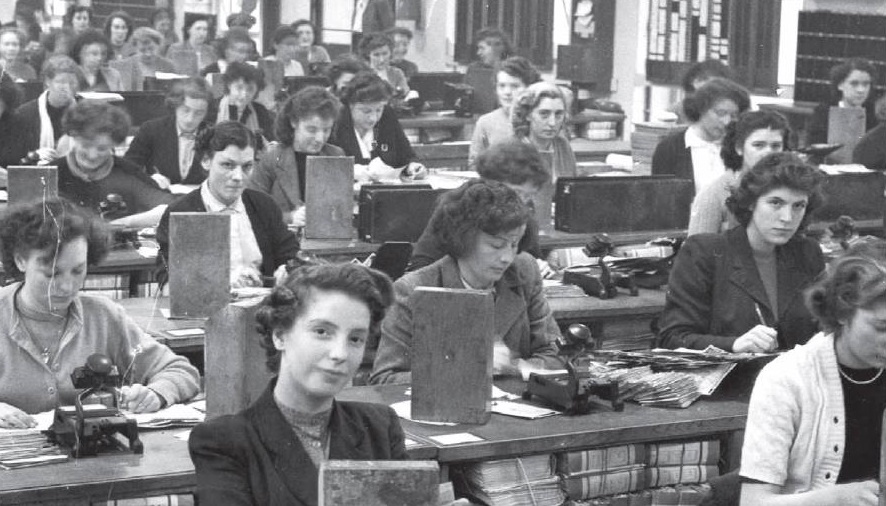
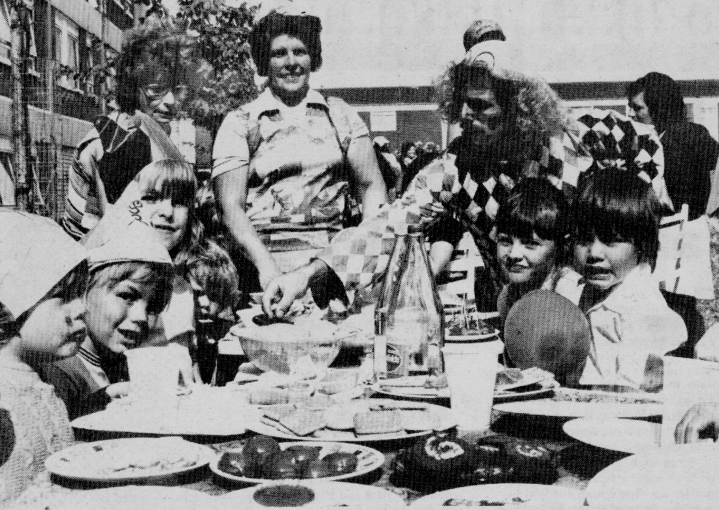
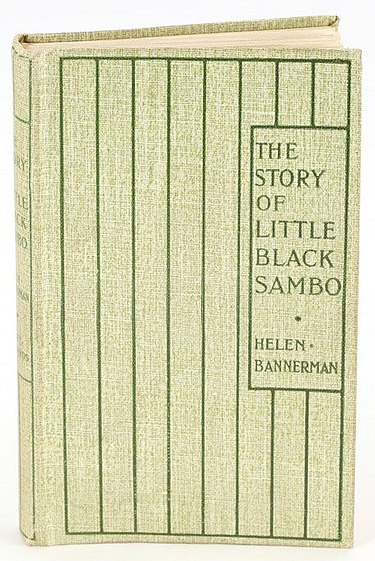
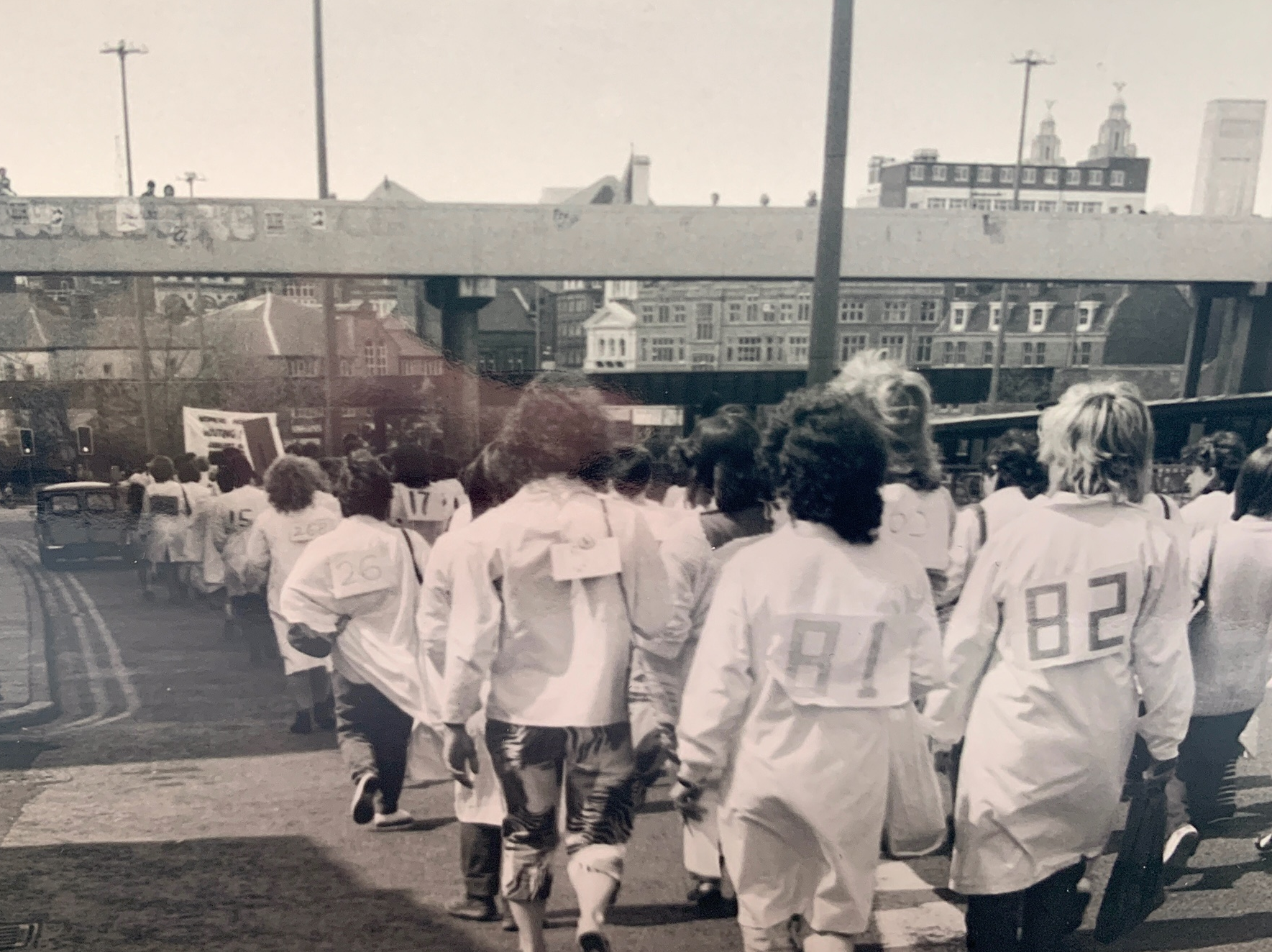

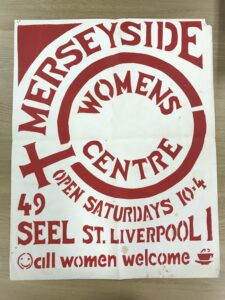
0 Comments